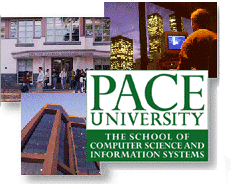

|
|
|
About us Members Publications Projects/News |
Objectives The Center has as one of its primary goals the study and development of innovative approaches and tools to promote the integration of formal methods into academia. Currently, the Center carries out a number of projects which are focused on innovative approaches to teaching a formal methods using a number of research prototype tools. The Center also aims at pioneering an innovative methodology that will increase the effectiveness of the learning experience by introducing the use of mechanized approaches in teaching formal methods. Undoubtly there is need to transfer quality research in the area of formal methods to the undergraduate curriculum. At many institutions of higher education faculty believe that formal methods is more suitable for graduate research programs than the undergraduate curriculum. Most computer science undergraduate curricula start with introductory programming courses and at some point include one or more discrete mathematics courses. But undergraduate curricula focus more on teaching programming languages and mathematics as two separate disciplines.They view mathematical logic as an add-on rather than an integral part of the science of programming. For example, the way that discrete mathematics courses are introduced to computer science majors makes it hard for students to fully understand the importance and role of mathematics in developing software.More importantly, students are provided with sophisticated tools to create programs, run them, and debug them but are never given tools to assist them in for example, understanding a proof in mathematical logic, simply because there were no such tools available until recently. A careful look at the majority
of undergraduate curricula shows that very few of the academic institutions
in the
The tools that we currently
investigate are used in many universities and research laboratories worldwide.
|